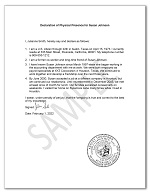 600 physical presence requirements" width="1024" height="356" />
600 physical presence requirements" width="1024" height="356" /> 600 physical presence requirements" width="1024" height="356" />
600 physical presence requirements" width="1024" height="356" />
Individuals who are born outside the United States to at least one U.S. citizen parent typically have a claim to U.S. citizenship. However, Congress changed the laws for citizenship acquisition at birth several times through the years. Thus, determining when a child was born and which law for acquisition of citizenship was in effect at that time is very important.
In virtually all cases, the parent must satisfy certain U.S. residence or physical presence requirements. In other words, the parent must have spent some period of time in the United States before the child was born. The period of time varies based on the law in effect at the time of the child’s birth. This is an extremely complicated area of immigration law. Therefore, gathering the correct evidence of the parent’s physical presence in the United States may be challenging.
Certain individuals automatically become U.S. citizens when born abroad to a U.S. citizen parent. Under current immigration law, the following conditions must be true:
Time abroad counts as physical presence in the United States if the time abroad was as a member of the U.S. armed forces in honorable status; under the employment of the U.S. government or other qualifying organizations; or as a dependent unmarried son or daughter of such persons.
These requirements change for children born out of wedlock and for children born before November 14, 1986. For a more detailed discussion on the current and past requirements, read Acquisition of Citizenship for Children.
U.S. citizen parents whose child is born abroad should contact the nearest U.S. embassy to acquire a Consular Report of Birth Abroad (CRBA). This document will be useful throughout the child’s life to prove U.S. citizenship and obtain other documentation such as a passport. Applicants must request a CRBA before the child turns 18 years of age. Additionally, you may only apply for the CRBA if living outside the United States.
All is not lost if the parent’s fail to request the CRBA before the child’s 18 th birthday. If a person acquires U.S. citizenship through a parent based on the laws at the time of birth, that person continues to be a citizen. However, he or she must document those events and request a Certificate of Citizenship to obtain the benefits associated with U.S. citizenship. Submit Form N-600, Application for Certificate of Citizenship, to make this request.
While it may be known that a parent lived in the United States during certain dates, it’s another matter proving it. When requesting a Certificate of Citizenship, the applicant must supply supporting documentation that proves the parent satisfied certain physical presence requirements. This may be challenging. The good news is that you can rely on a wide variety of documents such as school, employment and medical records to make this case.
CitizenPath’s Certificate of Citizenship Package can also help you determine your eligibility. CitizenPath’s affordable, online service makes it easy to prepare Form N-600, Application for Certificate of Citizenship. Designed by immigration lawyers, service helps you eliminate common errors that create delays, rejections and even denials. You’ll also get customized filing instructions based on your situation.
Besides presenting evidence that your parent is a U.S. citizen, the most significant hurdle is establishing that your parent had a physical presence. The burden is on the applicant to provide the supporting documentation. USCIS will not research this for you.
Physical presence proof is only required of the U.S. citizen parent. A non-U.S. citizen parent does need to list times in the United States.
When filing Form N-600, you may submit as many documents as necessary to establish the U.S. citizen parent’s physical presence. There are several ways to prove physical presence in the U.S. Original documents showing physical presence over time are the best. Examples of the types of evidence you may submit include:
A copy of passport pages with a nonimmigrant visa, admission stamps or parole stamps can help prove a physical entry. An I-94 arrival/departure record can do the same thing. It’s important to provide other documentation that demonstrates the duration of the presence.
Proof of paying rent combined with the agreement show your physical presence at the specific address. Likewise, other rental contracts help demonstrate your presence over a period of time.
Certified/official high school or university transcripts and official vaccination records are often excellent documents to present. Other types of documents are also acceptable if they have the cumulative effect of showing presence over time. A diploma does not necessarily show presence over time. Medical records showing treatment or care over a period of time are often helpful. For example, pre-natal records, early child immunization records, and lengthy treatments provide good documentation.
Applicants may submit employment records to prove a U.S. physical presence. Paystubs that cover a period of time or a W-2 are excellent examples. But you may use a variety of employment documents such as benefit records, training completions, attendance records, union membership records, etc. You may also use a Social Security statement. However, because income can be earned outside the U.S., Social Security statements should be supported by other evidence. Visit the Social Security website to access and print a copy of your Social Security statement.
You can even use court records and criminal records (including periods of incarceration) to prove physical presence.
A person’s participation in various organizations may help establish a physical presence. If that parent was recognized with an award or regularly named in the organization’s literature, this may be used as supporting documentation.
Certified/official military records are effective documents to show presence over a period of time. Likewise, records of U.S. military service, employment with the U.S. government or certain intergovernmental international organizations are excellent forms of documentation.
You may also use affidavits from credible witnesses having a personal knowledge of your parent’s physical presence or residence in the United States. Although you may submit affidavits, you should provide some type of additional evidence to support the application. Affidavits are generally viewed as secondary evidence that don’t carry as much weight as other primary evidence listed in the sections above. They’re appropriate to corroborate primary evidence. For example, an affidavit that provides testimony from someone who attended school with your parent is a great way to corroborate a school registration for the same school.
An affidavit notarized, written statement. The person who writes an affidavit swears to its truth and may be required to testify before an immigration officer in rare cases. The affidavit must include the following information:

The affidavit should be notarized. It’s also important to include a statement that swears to the statement’s validity, “I swear, under penalty of perjury, that the foregoing is true and correct to the best of my knowledge.”
Remember, use the affidavit to support other primary evidence that your parent was physically present in the United States during the requisite time periods. Download the sample N-600 affidavit >>
If you continue to live abroad and the applicant is under the age of 18, request a CRBA from your nearest U.S. embassy. Otherwise, applying for a Certificate of Citizenship from USCIS using Form N-600. CitizenPath helps applicants navigate the N-600 physical presence requirements and the evidence that must be submitted with an application.
CitizenPath’s affordable, online service provides step-by-step guidance through USCIS immigration applications. Individuals, attorneys and non-profits use the service on desktop or mobile device to prepare immigration forms accurately, avoiding costly delays. Custom filing instructions outline the specific supporting documents needed for your situation. CitizenPath even provides a money-back guarantee that USCIS will approve the application. We provide support for the Application for Certificate of Citizenship (Form N-600) and several other common USCIS forms.